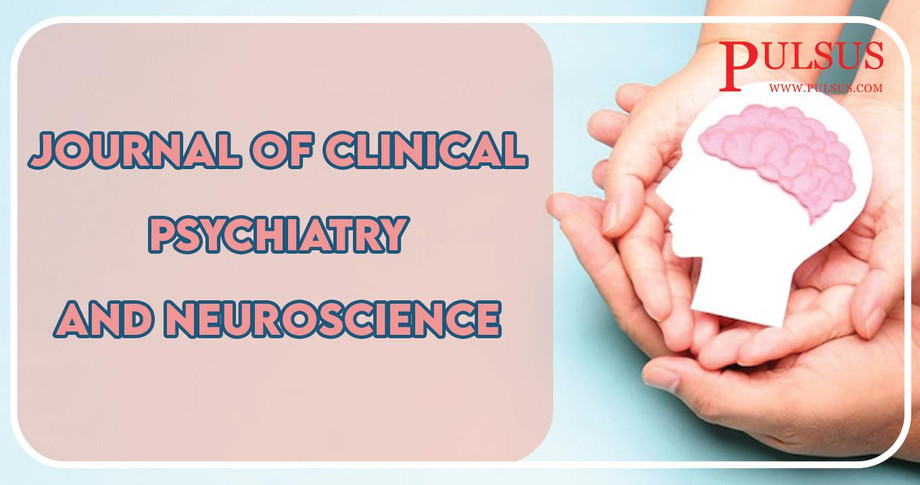Overview
Clinical Psychiatry and Neuroscience: an open access journal, which encompasses the following, is the study of scientific research on mental disorders like Alzheimer’s disease, Parkinson’s disease, Huntington’s disease, Schizophrenia, Autism, ADHD, Major Depressive Disorder, Obsessive-Compulsive Disorder, Adjustment Disorder.
The Journal is devoted to conveying and spreading to its examiners around the world, the latest knowledge in relation to mental disorders as well as Psychotherapeutics drugs.
In the upcoming issue, we are going to publish a case report entitled: Fear of the hijra and their existence-the sad truth of the community and the need for change, written by Consultant Neuropsychiatrist and Deaddiction Specialist- Udayan Bhaumik.
This amazing piece of writing had lights on- Hijras, are a unique entity in Southeast Asia, representative of the broader transgender community.
Hijra is an Urdu word that derives from the Arabic word hjr, which means to leave one's tribe. Historically, "hijras" were regarded with reverence. Iravan, a participant in the battle of Kurukshetra, is mentioned in the Mahabharata, a well-known Hindu epic. Several of them have been portrayed in historical chronicles as courtiers or keepers of harems. The Pandeva warrior-price Arjuna disguises himself as a eunuch-transvestite while he is exiled.
Modern mainstream society frequently misunderstands the enigmatic practices of the hijras. They must battle for fundamental human rights and benefits because they are frequently harassed, mistreated, and even victimized. They frequently have to deal with a lack of legal help that cannot look past the male-female divide. It becomes necessary for society to accept people for who they are and to support their access to fundamental rights.
These people's beliefs provide some insight into how hijras are viewed and handled in Indian, Pakistani, and Bangladeshi societies. Some of them may be castrated at a young age in accordance with rites, but many are not. They frequently reside in ghettos on the periphery of societies. Their family typically rejects them. They primarily turn to beg for a living due to discrimination they experience in various spheres of life, such as school, college, or employment. They might show up unexpectedly at various times, sing, and dance to advertise their arrival. Fear of being cursed by the community appears to be a big factor in why they are not turned away.
Due to the lack of rules set forth for hijras by local medical bodies, even after leaving their communities and choosing an independent life, they would struggle to choose or undergo sexual reassignment surgeries and basic healthcare services. They would thus seriously increase their risk of consequences if they were forced to consult quacks for these. After significant legal proceedings and verdicts around the world and increased knowledge of the hijra population, attitudes are likely to shift. The creation of transgender-friendly hospitals with access to both general healthcare and sex reassignment therapy choices is an important area for improvement.
For society to even come close to giving fundamental rights and advantages, much more work needs to be done.
Some suggestions which may be considered are:
1. The acceptance of transgenders and hijras as ‘third gender’.
2. Modification of laws to empower the hijra and transgender communities.
3. Supporting hijras for education and work at public and private institutions.
4. Form a grievance redressal committee dedicated to working for transgenders in each state.
5. Having transgender-friendly committees in hospitals and listing health institutions as ‘transgender-friendly.
Police and the media have a crucial role to play in raising community awareness, and mental health experts also play a significant role. Professionals in the field of mental health as well as public awareness play a significant impact.
It is crucial for society to begin providing fundamental rights to hijras and the trans community as a whole so that they can feel protected. For the reality to change there must be a profound shift in how society perceives hijras and transgender people. However, from the standpoint of the "third gender," there is a reason for optimism.
Interested authors can now submit their manuscripts. You can give our journal a try because of our quick publication and immediate peer review. You can submit your article right away to be printed in the upcoming issue.
You can submit through the submission portal or directly as an email to the editorial Board.
Submission portal: https://www.pulsus.com/submissions/clinical-psychiatry-neuroscience.html
Email id: clinicalpsychiatry@neurologyjournals.org

